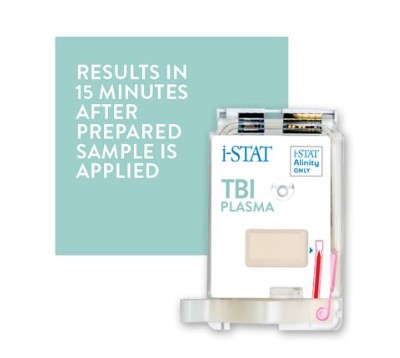Sideline Revolution: New Blood Test for Concussions Cleared by FDA
 The future of concussion management in sports is on the brink of a significant transformation with the FDA's recent approval of the first blood-based concussion test.
The future of concussion management in sports is on the brink of a significant transformation with the FDA's recent approval of the first blood-based concussion test.
 Developed by Abbott, this groundbreaking technology promises to revolutionize how head injuries are diagnosed on the field, offering results within 15 minutes without the need for hospital visits or CT scans.
Developed by Abbott, this groundbreaking technology promises to revolutionize how head injuries are diagnosed on the field, offering results within 15 minutes without the need for hospital visits or CT scans.
Dr. Ryan Lamb, the emergency rinkside physician for the Carolina Hurricanes and medical director of emergency medicine at UNC Rex Hospital, emphasized the potential impact of this rapid testing method:
"If you could have a test that would allow us to assess somebody quickly to determine that person needs to come out and not play, that’s fantastic."
He highlighted the disparity in the level of medical expertise available to professional athletes compared to amateur sports enthusiasts, underscoring the broad applicability and necessity of this technology.
The device, known as the Abbott portable i-STAT Alinity, utilizes a TBI (traumatic brain injury) cartridge to analyze blood samples for specific biomarkers indicative of a concussion. This enables immediate, lab-quality results right at the sidelines of sports events, thereby facilitating quicker medical decisions and potentially preventing further injury.
Despite its availability, this concussion detection test has not yet been implemented in sports settings. However, Abbott is actively seeking to integrate this technology across various sports disciplines throughout the United States.
Dr. Lamb also noted the importance of athletes not hesitating to report potential head injuries, combined with the use of proper equipment, as critical steps toward minimizing serious brain injuries.
As sports communities and healthcare providers eagerly anticipate the widespread adoption of this innovative testing tool, the promise of enhancing athlete safety and improving the quality of care for head trauma seems closer than ever.
![HR Logo [Recovered]_Full Color Vertical-1](https://blog.healthyroster.com/hs-fs/hubfs/HR%20Logo%20%5BRecovered%5D_Full%20Color%20Vertical-1.png?width=199&height=178&name=HR%20Logo%20%5BRecovered%5D_Full%20Color%20Vertical-1.png)
 By
By


